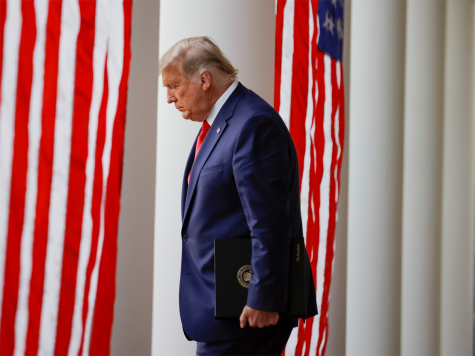Can Country Trump Party?

Regardless of whatever nonsense Rudy Guliani & Co. spew over the coming weeks and months, this election is settled. The votes have been cast, counted, in some cases re-counted, and on January 20th, 2021, this country will have a new president— Joe Biden. Tagged alongside this dramatic change in leadership is a monumental question: what now?
Trump’s meteoric rise to political stardom, unconventional 2016 general election campaign against Sec. Clinton, and four years of governance have affirmed a regretful trend in American politics. Not one of unified ascent or decline, but of ideological divergence and codified gridlock. His stint at the top of our country’s political hierarchy has exposed a growing ravine between red states and blue states, conservatives and liberals, between Trump’s America and reality.
The U.S. has reached a point at which our political conflicts are not so much founded in contrasting policy but a fundamental fear of the opposition. A pre-election Pew Research survey of Trump and Biden supporters found that “roughly eight-in-ten registered voters in both camps said their differences with the other side were about core American values.”
 What becomes of a nation unable to view partisanship as a conflict in strategy as opposed to incompatibility of “American values”? What happens when politicians find financial and political benefit in playing out both parties’ fantasies of isolated superiority? The answer: a government so divided it is incapable of supporting its constituents in their time of greatest need. As Congress entered its Thanksgiving recess, millions of Americans continued to suffer the lasting financial impact of the present pandemic. The Coronavirus Aid, Relief, and Economic Security Act passed by the Senate eight months ago is now a distant memory for those struggling to make ends meet. Despite efforts on the part of the Democratically-controlled House and pleas from Senate minority leadership, the likes of Mitch McConnell have chosen to refuse compromise on further stimulus legislation, placing party over country, appearance over benefit. As disadvantaged constituents face losing loved ones, their jobs, and their homes, they can rest assured that their recessed representatives hung on to their purely partisan colors.
What becomes of a nation unable to view partisanship as a conflict in strategy as opposed to incompatibility of “American values”? What happens when politicians find financial and political benefit in playing out both parties’ fantasies of isolated superiority? The answer: a government so divided it is incapable of supporting its constituents in their time of greatest need. As Congress entered its Thanksgiving recess, millions of Americans continued to suffer the lasting financial impact of the present pandemic. The Coronavirus Aid, Relief, and Economic Security Act passed by the Senate eight months ago is now a distant memory for those struggling to make ends meet. Despite efforts on the part of the Democratically-controlled House and pleas from Senate minority leadership, the likes of Mitch McConnell have chosen to refuse compromise on further stimulus legislation, placing party over country, appearance over benefit. As disadvantaged constituents face losing loved ones, their jobs, and their homes, they can rest assured that their recessed representatives hung on to their purely partisan colors.
Seemingly, out of this chaos and discord, has come a gallant knight of compromise. Joe Biden campaigned and won on a platform of unity, appealing to a broad swathe of liberals and centrists from a comfortable moderate-Democratic position, flipping the traditionally Republican states of Arizona and Georgia and rallying a divided Democratic party behind him. But even post-victory, and despite the present Administration’s irresponsible complaints of widespread fraud, President-elect Biden has kept a level head and continued to drive home the same message of bipartisan cooperation. “The political arena is too loud, too angry, too heated. To love our neighbor as ourselves is a radical act. It is what we’re called to do. We must try,” remarked Biden during his Thanksgiving address.
 And while it’s most certainly time that our parties lay down arms and return to the realm of policy-focused discussion, debate, and consensus, these calls for solidarity are largely drowned out, painted over, by an indignant “lame duck” Donald Trump espousing an unsupported rigged-election-narrative. In the past month, he’s wrapped up an already misguided, disoriented conservative base and darted into a universe of fantasy. At the Twitter-pulpit, he’s dealt out countless articles and television clips from a deck of increasingly unreliable fringe news sources (i.e. OAN, Newsmax, Breitbart) which put the conservative partiality of Fox News to shame. While many call to turn the other cheek, disregard Trump’s erratic behavior, and pursue capitalizing on Biden’s time in office, it is short-sighted to neglect the lasting impact of Trump’s actions during this volatile time for Republicanism and our democratic process at large.
And while it’s most certainly time that our parties lay down arms and return to the realm of policy-focused discussion, debate, and consensus, these calls for solidarity are largely drowned out, painted over, by an indignant “lame duck” Donald Trump espousing an unsupported rigged-election-narrative. In the past month, he’s wrapped up an already misguided, disoriented conservative base and darted into a universe of fantasy. At the Twitter-pulpit, he’s dealt out countless articles and television clips from a deck of increasingly unreliable fringe news sources (i.e. OAN, Newsmax, Breitbart) which put the conservative partiality of Fox News to shame. While many call to turn the other cheek, disregard Trump’s erratic behavior, and pursue capitalizing on Biden’s time in office, it is short-sighted to neglect the lasting impact of Trump’s actions during this volatile time for Republicanism and our democratic process at large.
As much as sensible citizens and policy-makers on both sides of the aisle plead for cooperation, for a mature bilateral exchange of ideas and opinions, Trump’s partisan iron curtain has an acute ability to trap his constituency in a realm of conspiracy theory and “alternative facts.” By sequestering the most radical of his base in a dome buttressed by flagrantly biased or outright factually incorrect news sources, the outgoing President has been able to paint whatever version of events best suits his agenda.
Rhetoric intentionally manufactured to divide the country, to infuriate Trumpian Republicans to the point of disassociation with a fact as fundamental as the rightful occupant of the Oval Office, to hinder functioning government is growing yet deeper roots. It’s a frightful path to follow. If we, the people, find ourselves unable to live on the same political plane as our neighbors, our co-workers, our families, we shouldn’t expect more mature behavior from the representatives we appoint. If the country wants a functioning Congress, one capable of feeding the hungry and staying open 365 days a year, Americans have to do better.
“You’re drinking your own Kool-Aid in a way that I think is troublesome and one of the big challenges that Joe Biden’s going to have is to figure out how to puncture that information bubble that … a sizable portion of voters are in right now,” remarked President Obama in an interview with Stephen Cobert last month.
The more Republicans seek to insulate themselves in positive media feedback loops, resist policy and action in favor of ignorant fear, divorce the “us” from the “them,” the further we’ll drift from the America best suited to serve all its people, right and left.
In short, I guess we’ll have to wait and see, but it isn’t looking good.

Lorenzo Ruiz, a senior, is a Coeditor-in-Chief. An enthusiast of government and current events, his hobbies include debate, Academic WorldQuest, Model...
